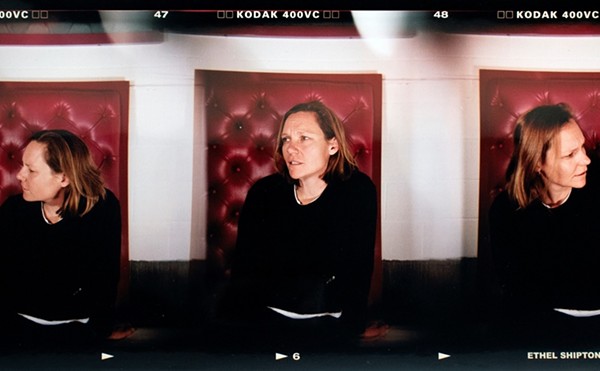In the black-and-white world of the 1950s, the nation's societal ills went Technicolor through such processes as the House Unamerican Activities Council, the Comstock Act, and electroshock therapy. The life of literary critic Newton Arvin was deeply touched by all three: Throw in his homosexuality, and you have one conflicted member of the intelligentsia.
Barry Werth's The Scarlet Professor allows readers to look through the microscope at one of the most eloquent, though little known, literary critics of our time. For nearly 40 years, Arvin was an esteemed professor at Smith College, publishing groundbreaking literary studies of 19th-century American writers such as Hawthorne, Melville, and Longfellow that still stand as models for today's critics. He counted Lillian Helman and Truman Capote among his friends.
Despite his outspoken support of socialism, Arvin managed to survive McCarthyism. Yet Arvin was unable to deny his sexual orientation, the one factor that eventually created scandal at Smith and led Arvin to depression and despair.
Early on, Arvin had a well-developed sense of literature, pursuing a career in academics, much to the dismay of his traditional Midwestern parents. He also had a sense that something about his sexual inclinations were "different," although he tried to deny them; first by living an asexual lifestyle and then by marrying one of his students. Eventually Arvin gives in to his orientation, embarking initially on brief encounters, followed by longer affairs with literary scholars (Capote among them) and finally anonymous meetings in nearby Springfield, Massachusetts.
When the Comstock Act — which allowed the postmaster general to ban any book, letter, pamphlet, or picture he found to be obscene — was revitalized in the 1950s, Arvin's secret life was doomed to be revealed. An acquaintance informed postal inspectors about Arvin's collection of beefcake erotica: his apartment was raided, his friends were unmasked, he became the subject of scandal at Smith, and his lifelong battle with depression put him over the edge.
Interestingly, Smith College honored Arvin and two similarly dismissed professors with a scholarship and a program on civil liberties in March. In addtion to a $10,000 program, the board created the Newton Arvin Prize in American Studies, a $500 annual scholarship. An ACLU representative called the civil liberties program and scholarship fund an "unimpressive pittance." A Smith spokeswoman attributed the board's action to Werth's book.
"Nobody said they weren't good teachers. They were fired because they were perceived as dirty men," Werth said.
The Scarlet Professor deftly reports on the supposed dangers that lurked in the minds of Americans, taking the reader inside the "legal" measures used by authorities to keep the nation's purity intact. Werth's thorough research and thoughtful reflections on the troubled life of Arvin make for a thought-provoking piece of non-fiction.















